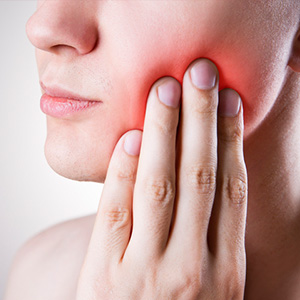
There's no doubt treating dental problems can improve your health. But because the mouth is among the most sensitive areas of the body, many dental procedures can be potentially uncomfortable after treatment.
We rely on pain medication to alleviate any dental work discomfort, especially during recuperation. Our arsenal of pain-relieving drugs includes strong opioid narcotics like morphine or oxycodone which have effectively relieved dental pain for decades. But although they work wonders, they're also highly addictive.
We've all been confronted in the last few years with startling headlines about the opioid addiction epidemic sweeping across the country. Annual deaths resulting from opioid addiction number in the tens of thousands, ahead of motor vehicle accident fatalities. Although illegal drugs like heroin account for some, the source for most addiction cases—an estimated 2 million in 2015 alone—is opioid prescriptions.
Dentists and other healthcare providers are seeking ways to address this problem. One way is to re-examine the use of opioids for pain management and to find alternative means that might reduce the number of narcotic prescriptions.
This has led to new approaches in dentistry regarding pain relief. In a trend that's been underway for several years, we've found managing post-discomfort for many procedures can be done effectively with non-steroidal anti-inflammatory drugs (NSAIDs) like aspirin, acetaminophen or ibuprofen. They don't share the addictive quality of narcotics and are regarded as safer when taken as directed.
There's also been a recent modification with using NSAIDs. Dentists have found that alternating the use of ibuprofen and acetaminophen often amplifies the pain relief found using only one at a time. By doing so, we may further reduce the need for narcotics for more procedures.
The trend now in dentistry is to look first to NSAIDs to manage pain and discomfort after dental work. Narcotics may still be used, but only in a secondary role when absolutely needed. With less narcotic prescriptions thanks to these new pain management protocols, we can reduce the risk of a dangerous addiction.
If you would like more information on managing pain during and after dental work, please contact us or schedule an appointment for a consultation.

